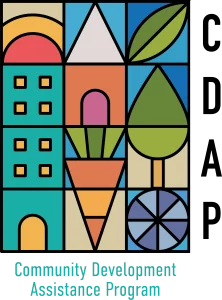Class 2: March 31, 2021 (9AM to 3PM)
Agenda
Theme
How can local governments best work with artists? What do elected officials and city employees need to know to be successful in engaging artists in planning and community engagement roles?
Learning objectives
Class will discuss and see examples of how local governments make the case for and manage artist relationships.
Speakers
Rachel Will, Senior Planner, Atlanta Regional Commission
Jenn Erickson, Director of Arts and Culture, Metropolitan Area Planning Commission (Boston)
Jennifer Raitt, Director, Department of Planning and Community Development, Town of Arlington
Stewart Ikeda, Chair, Commission for Arts & Culture, Town of Arlington
Project Work
References
Class records
Self-Reflexivity and Project Time:
MAPC and Town of Arlington:
Class 3: April 14, 2021 (9AM to 3PM)
Agenda
Theme
Leading with creativity - How can artists lead and improve community engagement processes?
Learning objectives
Class will have concrete examples of how artists can lead community engagement processes, including participating in online engagement.
Speakers
Ashley Sparks, Theatremaker and Engagement Strategist
Tonika Johnson, Folded Map Project and Englewood Arts Collective
Project Work
- Testing the “Solution”
- Gathering Community Feedback
References
Class records
Ashley Sparks
Ashley's interactive slide deck
Ashley's slides as PDF
Alternate Roots - Arts and Community Partnerships Work Kit
Ashley's site
Tonika Johnson
Tonika's Site
Tonika's Instagram
Folded Map
Englewood Arts Collective
Chicago Metro Planning Council's The Cost of Segregation Report


